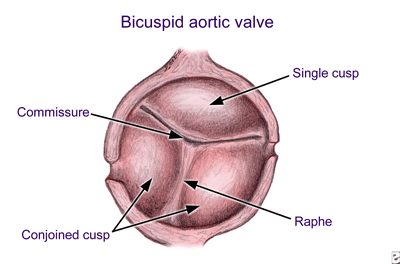Surgeon Q&A: “Is Heart Valve Disease Genetic?” asks Sue
Written By: Adam Pick, Patient Advocate, Author & Website Founder
Page Last Updated: June 27, 2025
A great question from Sue came in regarding genetics and heart valve disease. She asked me, “Adam – Is heart valve disease genetic or is there a tendency to develop valvular disease in the later years of life?”
To answer Sue’s question, I was very lucky to interview Dr. Patrick McCarthy, the chief of cardiac surgery and executive director of the Bluhm Cardiovascular Institute at Northwestern Medicine. If you didn’t know, Dr. McCarthy is a valve specialist having performed over 4,000 heart valve procedures. At our community, Dr. McCarthy has successfully treated many patients as you can see by the 200+ patient testimonials posted here.
I hope that helped Sue (and perhaps you) learn more about the genetics associated with heart valve disease. Many thanks to Sue for her question and a special thanks to Dr. McCarthy for sharing his clinical experiences and research with our community.
And… As Dr. McCarthy suggests… If someone in your close family has a bicuspid aortic valve… Please… Please get screened!!!
Related Links:
- Bicuspid Aortic Valve Genetics: Maternal or Paternal?
- Family Screening for Bicuspid Aortic Valves: What Should You Know?
Keep on tickin!
Adam
P.S. For the hearing impaired members of our community, I have provided a written transcript below.
Adam: Hi, everybody! It’s Adam with heartvalvesurgery.com. Today, we’re at the Heart Valve Summit in Chicago, Illinois. I’m talking with Dr. Patrick McCarthy. Dr. McCarthy, thanks for being with us.
Dr. McCarthy: Thank you, Adam.
Adam: Dr. McCarthy is the Chief of Cardiac Surgery at Northwestern Medicine. He’s also the Executive Director of the Bluhm Cardiovascular Institute. Dr. McCarthy’s going to answer Sue Webb-Meyer’s question that she just submitted at our Facebook page. She asks, “Is heart valve disease genetic or is there a tendency to develop valvular disease in the later years of life?”

Dr. McCarthy: That’s a good question and actually it’s a very common question that we have to deal with. There’s really two scenarios: one is that there’s a specific condition called bicuspid aortic valve disease, which you know very well, Adam, because you had that. That actually can run in families. It’s in about 2% of the population so guys like me see it every day.
When that happens, about 20%, so one out of five, runs in the family. I talk to patients and they say my brother had this operation or my nephew or something like that. We actually recommend screening family members with that now. We recommend if a patient has a bicuspid aorta valve, that first degree relatives, which means close relatives, get an ECO. That one is clearly genetic.

Bicuspid Aortic Valve
The other ones, like mitral valve disease, mitral valve prolapse, where you break the strings on the valve and the chords, we’re a little suspicious that someday we may show that that one is genetic, but it hasn’t been shown. If we ever show it and can prove it, I’ll win the Nobel Prize. We’re suspicious but we don’t know about that one.
The 95-year old, in a sense that is arthrosclerosis that is developing and things like that can run in the families, like heart attacks. Sometimes you see people and there’s been valve disease at an elderly age but that one is much less common.
Adam: Well Dr. McCarthy, thanks again for all your help and support of our community and the great care you’re providing to our patients.
Dr. McCarthy: Thanks for taking care of these patients, too, Adam.
|
Lori Phillips says on June 29th, 2016 at 6:13 am |
|
Would Ebstein’s Anomaly be genetic? Or congenital? Can a congenital defect be a genetic one as well? Also, why is the tricuspid valve so rarely talked about? Is it less important? I was told by a surgeon it’s referred to as the “forgotten” valve. |
 |












